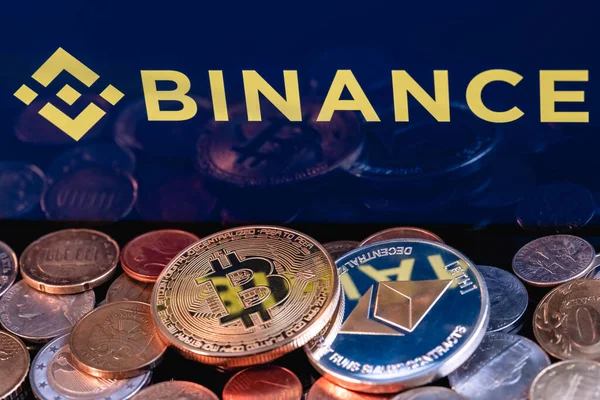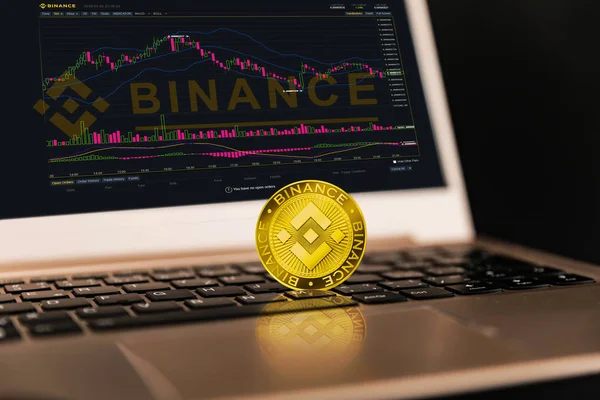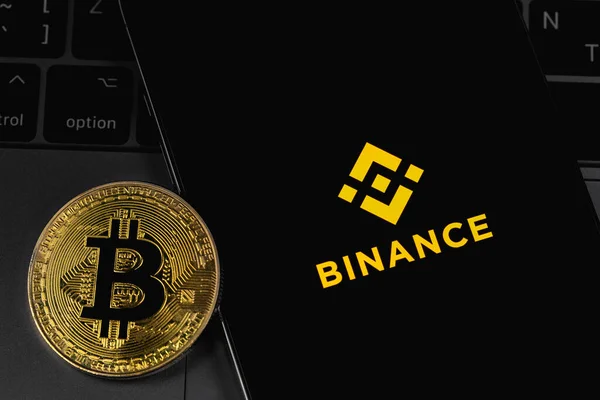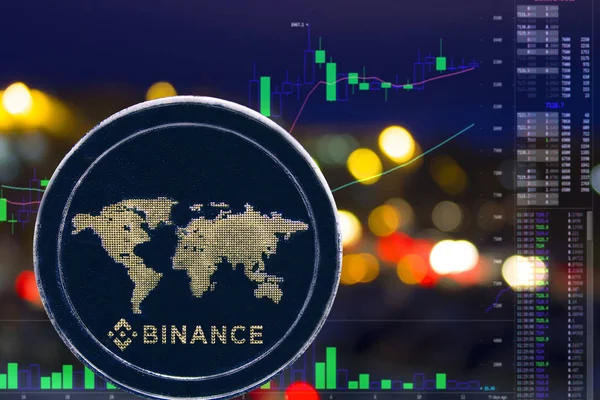Understanding the Regulatory Landscape for Crypto Exchanges

The regulatory environment for cryptocurrency exchanges in the United States is complex and continuously evolving. Each state has its own set of rules and regulations, leading to a patchwork of compliance requirements that crypto exchanges must navigate. Federal agencies, including the Securities and Exchange Commission (SEC) and the Commodity Futures Trading Commission (CFTC), play crucial roles in determining how cryptocurrencies are classified and traded. This regulatory landscape is crucial for users to understand, especially when considering platforms like Binance.
A significant aspect of these regulations pertains to Anti-Money Laundering (AML) and Know Your Customer (KYC) policies. Exchanges that operate within the U.S. are mandated to adhere to strict AML and KYC regulations to prevent illegal activities and ensure the identity of their users. Non-compliance can lead to severe penalties, including fines or the revocation of operating licenses.
Another critical component is the categorization of cryptocurrencies as either securities or commodities. The SEC has indicated that some tokens may fall under its jurisdiction, leading to potential legal ramifications for exchanges that facilitate their trade without proper registration. This has created uncertainty, especially for global exchanges like Binance, which must adjust their operations to fit a diverse array of regulatory requirements.
State-specific regulations also come into play, as some states have enacted their own licensing requirements for crypto exchanges. For example, New York requires exchanges to obtain a BitLicense, which can be a lengthy and costly process. As a result, many global platforms either choose to restrict access or modify their services in those states.
The evolving nature of cryptocurrency regulations means that users must remain vigilant and informed. Keeping abreast of changes in legislation and compliance requirements is essential for anyone interested in trading cryptocurrencies on platforms like Binance.
In summary, the regulatory landscape in the U.S. presents both challenges and opportunities for crypto exchanges. Understanding these can help users make informed decisions when using platforms like Binance, which must continuously adapt to ensure compliance.
Binance’s Operations: A Global Perspective on Compliance

Binance, one of the largest cryptocurrency exchanges in the world, has made significant strides in establishing its presence globally. However, with such a vast operational footprint comes the challenge of complying with differing regulations across various jurisdictions. The exchange operates in multiple regions, each with unique regulatory requirements that it must navigate carefully to maintain a good standing.
Initially launched in 2017, Binance grew rapidly, offering a wide array of cryptocurrencies for trading. Its expansion involved entering markets with different regulatory frameworks, which posed both opportunities and risks. In response, Binance has implemented several compliance measures, including the establishment of local offices and partnerships with regulatory bodies to adhere to the specific laws of each region.
In recent years, Binance has faced scrutiny from regulators in several countries, leading to heightened compliance efforts. The exchange has taken significant steps to improve its transparency and diligence in adhering to AML and KYC regulations. These efforts include the hiring of compliance experts and the introduction of advanced technology to monitor and evaluate transactions.
Despite its global reach, Binance has had to restrict operations in some markets due to regulatory pressures. For instance, in the U.K. and Japan, the exchange faced regulatory challenges that led to limitations on specific services. While Binance has made efforts to comply with these regulations, the dynamic nature of global crypto regulation remains a constant challenge.
The international compliance landscape has affected Binance’s decision-making regarding its operations in the U.S. The exchange has aimed to create a compliant experience for American users while addressing the various regulatory hurdles present in the market. This strategic approach is critical as it seeks to regain and maintain trust among its user base.
In conclusion, Binance’s operations around the globe demonstrate the complexities of compliance in the ever-changing landscape of cryptocurrency regulation. As the platform continues to adapt its strategies, users can expect ongoing changes in how Binance operates in different regions, including the U.S.
Exploring Binance US: Features and Limitations Explained

Binance US, the American arm of the global Binance exchange, was launched in 2019 to comply with U.S. regulations. It aims to provide American users with access to a range of cryptocurrencies while adhering to strict regulatory standards. For many users, Binance US presents an attractive option, but it does carry its own set of features and limitations.
One of the main advantages of Binance US is its user-friendly interface, designed to cater to both novice and experienced traders. The platform supports a variety of cryptocurrencies, allowing users to trade popular coins like Bitcoin, Ethereum, and numerous altcoins. Additionally, Binance US offers advanced trading options, including limit orders and futures trading, appealing to more seasoned traders.
Security is another key feature of Binance US. The platform employs several security measures, including two-factor authentication (2FA) and cold storage of digital assets, to protect users’ funds. This focus on security helps to build trust among American users who are increasingly concerned about the safety of their investments.
However, there are notable limitations on Binance US compared to its global counterpart. For one, the selection of cryptocurrencies is more restricted, with fewer trading pairs available. This limitation can be a drawback for users who seek exposure to a broader range of assets. Additionally, certain features available on the global platform, such as margin trading and lending services, are not yet offered on Binance US.
Another challenge for Binance US is the regulatory environment, which can lead to sudden changes in available services. Due to the varying regulations from state to state, users in certain jurisdictions may find that specific features are not accessible, further narrowing their trading options.
In summary, Binance US aims to provide a compliant and secure platform for American traders, but it does come with certain limitations compared to its global counterpart. Users should weigh these factors when considering whether to engage with Binance US as their preferred cryptocurrency exchange.
Legal Challenges Facing Binance in the American Market

Binance has faced a myriad of legal challenges as it seeks to establish a foothold in the U.S. market. The exchange’s global operations have drawn scrutiny from various regulatory bodies, raising concerns about compliance with American laws and the potential risks of operating without proper licensing.
One of the most significant legal challenges comes from the SEC, which has been actively investigating whether certain cryptocurrencies traded on Binance qualify as securities. Should the SEC classify specific tokens as securities, Binance could face legal ramifications for facilitating trades without proper registration. This investigation highlights the complexities of crypto regulation in the U.S. and the potential consequences for exchanges that fail to comply.
Additionally, Binance US has had to navigate the varying regulations imposed by individual states. Some states have enacted their own stringent measures, demanding that exchanges obtain specific licenses to operate. Failure to do so can result in fines or even the cessation of services in those states. For Binance US, this means constantly adjusting its operations to remain compliant in a rapidly changing legal landscape.
Furthermore, Binance has also faced legal actions from users who claim that the exchange failed to fulfill its obligations or mismanaged their funds. Such lawsuits can pose a risk to Binance’s reputation and financial stability, potentially leading to further regulatory scrutiny.
The ongoing legal challenges have prompted Binance to enhance its compliance measures, including the appointment of regulatory experts to oversee operations in the U.S. The exchange has publicly committed to working with regulators to ensure transparency and compliance, which is essential for restoring trust among users.
In conclusion, Binance faces significant legal challenges in the American market, primarily stemming from regulatory investigations and state-specific compliance requirements. How the exchange navigates these hurdles will determine its long-term viability in the U.S. cryptocurrency landscape.
Alternatives to Binance for US Cryptocurrency Traders

For U.S. cryptocurrency traders seeking alternatives to Binance, several exchanges offer competitive features and services. The choice of an exchange largely depends on the user’s needs, including trading volume, available assets, and security measures.
- Coinbase: As one of the most well-known cryptocurrency exchanges in the U.S., Coinbase offers a user-friendly interface and a wide selection of cryptocurrencies. It is particularly appealing to beginners due to its educational resources and intuitive design. However, trading fees can be relatively high compared to other platforms.
- Kraken: Known for its robust security measures, Kraken is another popular choice among U.S. traders. It offers a wider range of cryptocurrencies and advanced trading options, including futures and margin trading. Kraken’s commitment to compliance makes it an attractive option for users concerned about regulatory scrutiny.
- Gemini: Founded by the Winklevoss twins, Gemini emphasizes security and regulatory compliance. It offers a clean interface and a solid selection of cryptocurrencies. While it may not have as many trading pairs as Binance, Gemini provides insurance for digital assets held on its platform, adding an extra layer of security.
| Feature | Binance US | Coinbase | Kraken | Gemini |
|---|---|---|---|---|
| User Interface | User-friendly | Very user-friendly | Advanced capabilities | User-friendly |
| Cryptocurrency Selection | Moderate | Wide range | Wide range | Moderate |
| Trading Fees | Competitive | Higher fees | Competitive | Competitive |
| Security Measures | Strong | Strong | Very strong | Very strong |
| Regulatory Compliance | High | High | High | Very high |
Other alternatives include Huobi and KuCoin, both of which offer diverse trading options and competitive fees. However, U.S. users should exercise caution and ensure compliance with local regulations when choosing these platforms.
In summary, while Binance US offers a valuable service for American traders, several alternatives provide varying features and benefits. Users should evaluate their trading preferences and risk tolerance when selecting a platform that best fits their needs.
The Future of Binance in the United States: What Lies Ahead?

Looking ahead, the future of Binance in the United States remains uncertain, largely influenced by the evolving regulatory environment. As regulators continue to scrutinize cryptocurrency exchanges, Binance must adapt its operations to remain compliant while ensuring that it meets the needs of American users.











I’m glad there are alternatives like Coinbase and Kraken if Binance isn’t available in some states.
I learned that Binance has to follow many rules in the US. It’s not easy for them.
For American users, understanding the regulatory landscape is crucial when using platforms like Binance.
Wow, every state has different regulations for crypto exchanges. That’s complicated!
I didn’t know that exchanges need a BitLicense in New York. It sounds tough for Binance.
It’s good that Binance is improving its security and compliance measures worldwide.
Looks like Binance has a big task keeping up with all these rules, especially from the SEC.
Binance US has fewer options than the global version, but it’s safer with more regulations.
Interesting to see how Binance is trying to comply with US laws by launching Binance US.
The legal challenges for Binance in the US show how important it is to follow regulations.